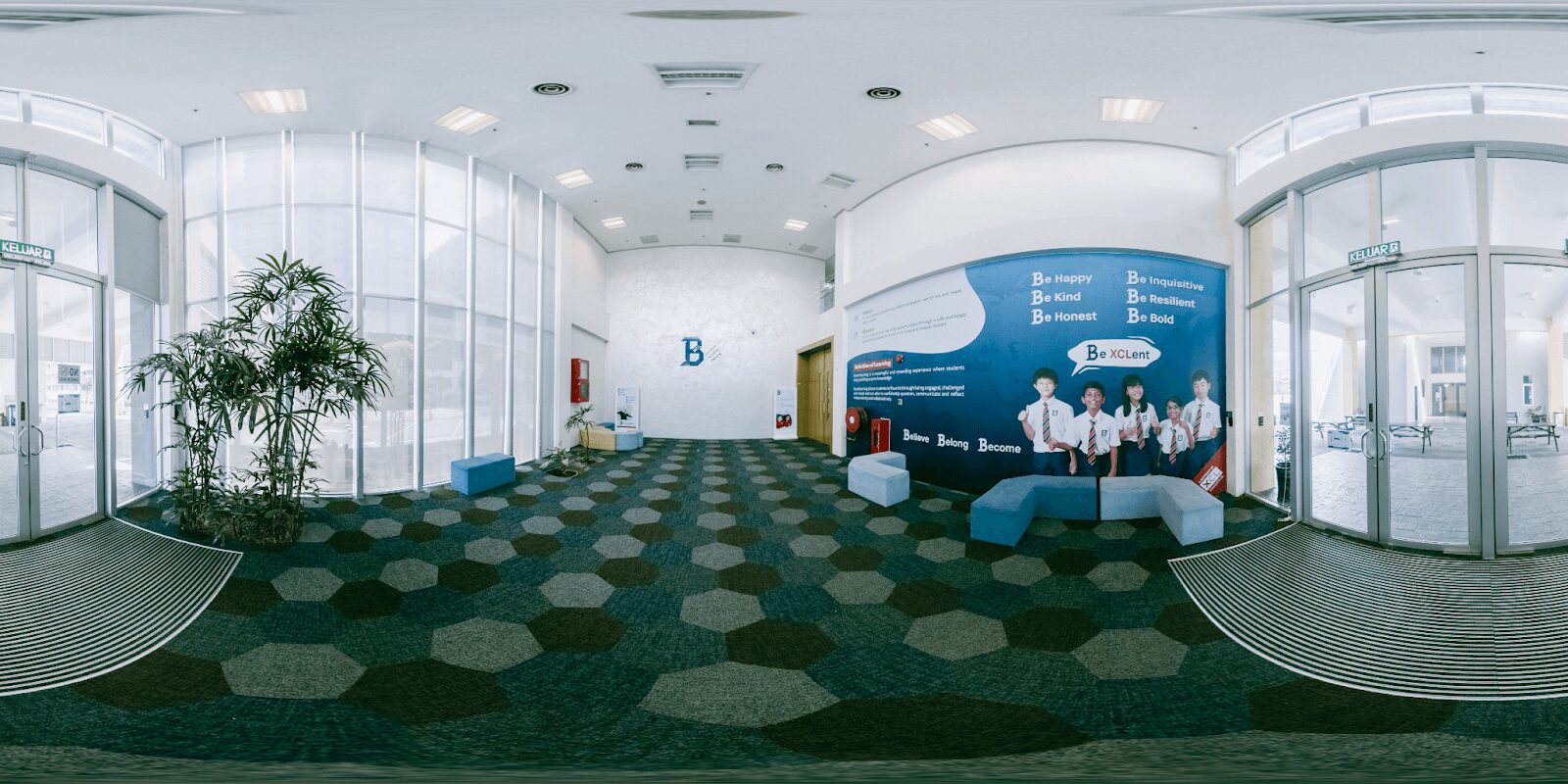
A solid pre-university foundation is crucial for success in today’s competitive academic landscape. Students who receive proper pre-university preparation are better positioned to gain admission to prestigious institutions worldwide. By carefully selecting the right programme, students can enhance their chances of future success in higher education.
BXCL is at the forefront of providing top-quality education, offering Penang’s best A-Levels. The school has established itself as an outstanding institution that equips students with the skills needed for university-level academics and global educational standards. With its comprehensive support system, BXCL imparts essential knowledge and builds students’ confidence, preparing them for success at renowned universities worldwide.
What Are Pre-University Programmes?
Understanding Your Pre-University Options
Pre-university programmes are essential pathways that bridge secondary education and university. They provide students with academic qualifications that facilitate successful university admission. These specialised curricula help develop students’ subject knowledge, critical thinking skills, and ability to learn independently, all crucial for university success.
Students have several pre-university options based on their needs and aspirations. The most common pre-university courses include A-Levels, foundation programmes, and the International Baccalaureate (IB). Each pathway offers a unique approach to academic preparation, enabling students to progress to their chosen educational institutions, whether in the UK, Australia, the US, or other international universities.
Why A-Levels are a Leading Choice
A-Levels are among the most respected international qualifications available for pre-university students. The variety of subjects offered allows students to specialise in areas related to their future university studies, gaining in-depth knowledge at an advanced level. A-Levels provide the focused education that universities worldwide value, making them an excellent choice for students seeking academic success.
The global recognition of A-Levels enables students to apply to universities in the UK, Australia, Canada, and many other countries with confidence in the validity of their academic credentials. A-Levels help students develop key skills such as critical analysis, problem-solving, and independent research, essential for academic success throughout university and beyond. For students who require comprehensive academic preparation before higher education, A-Levels offer a broad educational scope and international recognition, making them a top choice for global university applicants.
How BXCL Prepares Students for Global Universities

Holistic Academic Support
At BXCL, academic knowledge and essential skills form the core of the curriculum, preparing students for success in university-level studies. Critical thinking, problem-solving, and research abilities are integral to the programme, ensuring that students are equipped to face academic challenges in global university systems. These skills foster strong subject expertise, enabling students to tackle complex concepts independently, just as top universities worldwide require.
BXCL maintains small class sizes, ensuring high personalized academic support standards. With a focused teacher-to-student ratio, students benefit from more meaningful interactions with their teachers, allowing for tailored guidance and assistance. This structured educational model ensures that students understand the course material deeply and can ask questions and receive individualised help. The academic environment at BXCL supports the development of key academic skills, preparing students for university-level education.
Personalised University Guidance
BXCL’s support extends beyond academics. The school offers personalised university counselling services to assist students in preparing for their university applications. The school provides a dedicated counselling service, helping students match with suitable universities and courses based on their academic abilities, career aspirations, and personal preferences. This tailored guidance helps students choose an educational path that aligns with their goals.
Why BXCL’s A-Levels Programme in Penang Stands Out

A-Levels at BXCL – A Trusted Path to Academic Success
BXCL offers various educational workshops to prepare students for key university entry requirements, including personal statements, interview training, and application techniques. These workshops equip students with essential tools and confidence, allowing them to present their best qualifications during the university admission process. With expert guidance, BXCL students develop strong personal statements and interview skills, fully preparing them for every stage of their application journey. The comprehensive educational support BXCL provides enables students to become top candidates for university applications worldwide.
BXCL’s A-Levels programme is designed to build comprehensive exam preparation skills, ensuring that students are well-equipped to handle the rigours of A-Level exams. The programme integrates theoretical knowledge with practical skills, preparing students for high-stakes exams. Teachers combine traditional teaching methods with modern educational tools, offering students a well-rounded educational experience. In small class settings, students receive personalised academic assistance, allowing them to ask questions, address challenges, and deepen their understanding of complex subjects. This small-scale learning environment promotes both academic growth and personal development.
Global Recognition & University Pathways
BXCL’s A-Levels programme opens doors to prestigious universities worldwide. The A-Level qualification is globally recognised, allowing BXCL students the freedom to apply to top universities in the UK, Australia, Singapore, and many other countries. University admissions officers recognise the high academic standards of A-Level qualifications, making BXCL graduates attractive candidates who meet the rigorous demands of higher education.
With a strong A-Level foundation, BXCL students are well-prepared to pursue various university courses, from engineering and business to medicine and the arts. The global recognition of the A-Level qualification gives them access to leading institutions worldwide, opening up greater opportunities for academic and professional success.
Unique Advantages of Studying A-Levels at BXCL
BXCL’s A-Level curriculum provides more than just academic depth. Students enjoy a dynamic campus life with access to modern facilities that enhance their learning experience. The school’s state-of-the-art classrooms, well-equipped laboratories, and advanced learning technologies create an environment that supports both academic and personal growth. In addition to their studies, students benefit from extracurricular activities, social events, and cross-cultural exchange programmes, which enrich their educational experience.
Student success at BXCL is supported through personalised educational services tailored to each individual. The school provides dedicated academic and university application support, addressing each student’s unique needs. BXCL’s comprehensive approach offers educational and emotional support, helping students reach their full academic potential before progressing to their chosen university destinations worldwide.
A-Levels vs Other Pre-University Programmes
Students are presented with multiple options for their pre-university education, with A-Levels, Foundation programmes, and the International Baccalaureate (IB) being the most popular pathways. While each of these programmes prepares students for university, A-Levels remain the preferred choice due to their flexible study options and global recognition, particularly for students aiming for competitive fields such as Medicine, Engineering, and Business.
Flexibility and Global Recognition
Due to its adaptable structure, the A-Levels programme offers high flexibility. Unlike the Foundation and IB programmes, which follow more standardised learning pathways, A-Levels allow students to choose subjects that align with their interests and future university plans. Students can select from various subjects across the sciences, humanities, and social sciences, equipping them with a strong academic foundation tailored to their chosen university course.
Benefits for Competitive Fields: Medicine, Engineering, and Business
A-Levels offer distinct advantages for students aiming to study Medicine, Engineering, or Business due to their focus on subject-specific knowledge. Medicine and Engineering typically require students to understand certain scientific subjects deeply. A-Levels allow students to specialise in subjects such as Biology, Chemistry, and Physics, which are crucial for university courses in these fields. This in-depth study helps students build a strong academic foundation, preparing them for the challenges of their chosen university programmes.
For those interested in Business, A-Levels provide the opportunity to focus on core subjects like Mathematics, Economics, and Business Studies. These subjects offer a solid foundation for pursuing higher education in business-related fields. The ability to tailor subject choices based on future career goals sets A-Levels apart from other pre-university qualifications and provides students with a head start in their academic and professional journey.
A-Levels offer greater academic challenges and subject specialisation than Foundation programmes, enabling students to delve deeply into specific knowledge areas before university. This makes A-Levels ideal for students committed to attending prestigious institutions and pursuing competitive university courses.
Choosing the Best Pre-University Pathway for You

Choosing the right pre-university pathway is crucial to a student’s academic development. Your choice will shape your immediate learning experience and have long-term effects on your ability to gain admission to universities and pursue your future career. When making this decision, it’s important to consider three key aspects: your career goals, university entry requirements, and personal learning style.
Career Goals and University Entry Requirements
The pre-university pathway you choose should align with your future career aspirations. Your desired field of study will influence which educational qualifications you need for university admission, as different fields have specific course prerequisites. For instance, students aiming for medical or engineering programmes at prestigious universities must complete Biology, Chemistry, Physics, and Mathematics. While Foundation programmes offer a broader scope, they often lack the subject-specific specialisation provided by qualifications like A-Levels.
It’s essential to research the entry requirements for each university you plan to apply to, as these can vary between institutions. Understanding which pre-university qualifications universities prefer will help you determine the most suitable pathway for your goals. A-Levels are widely recognised as a gateway to universities in the UK and Commonwealth countries, while the IB Diploma is accepted by universities globally. While Foundation programmes offer a more flexible entry route, they may not provide the same level of academic preparation for competitive programmes as A-Levels do.
Personal Learning Preferences
Your personal learning style and preferences should play a significant role in your decision. A-Levels provide the flexibility to choose subjects based on your strengths and interests, making them ideal choices for students who excel in structured, exam-focused learning. This programme suits students who thrive on in-depth study and independent learning, as it encourages critical thinking and self-discipline.
The International Baccalaureate (IB) may be a better fit if you prefer a more holistic educational approach. The IB focuses on developing a well-rounded student through diverse subject choices, projects, creativity, community service, and critical thinking. This programme may suit students who seek a broader academic experience with a strong emphasis on personal development.
Foundation programmes are best suited for students who need additional academic support before specialising in a specific field. These programmes offer focused assistance to help students strengthen their academic skills before starting university-level education.
Reflection on Academic and Career Aspirations
Assessing your academic strengths, career goals, and preferred learning environment is essential when choosing a pre-university pathway. Consider the direction you want your life to take and evaluate which qualifications will best support your goals. Seek advice from teachers, academic advisors, and professionals in your intended field to gain insight into the most appropriate pathway for your future success.
The decision you make regarding your pre-university education will shape your academic journey. By carefully evaluating each pathway and aligning it with your long-term goals, you can make an informed choice that will set you up for success at university and beyond.
Conclusion
Selecting the right pre-university pathway is crucial for students aiming to achieve their academic and career goals. The A-Level programme offered by BXCL provides an ideal educational pathway for Penang students seeking admission to prestigious global universities. Combining flexibility with worldwide recognition, this programme is designed to help students reach their academic potential.
At BXCL, students benefit from expert teaching, personalised support, and specialised university guidance, ensuring they are fully prepared to meet the requirements of their chosen universities and excel in their future fields.
BXCL’s comprehensive approach to education has established the institution as Penang’s leading centre for pre-university and A-Level programmes. For students seeking a solid academic foundation, a competitive edge, and the best possible preparation for university, the A-Level programme at BXCL offers an unmatched opportunity. Take advantage of current enrolment opportunities to secure your place at a prestigious global university.


























